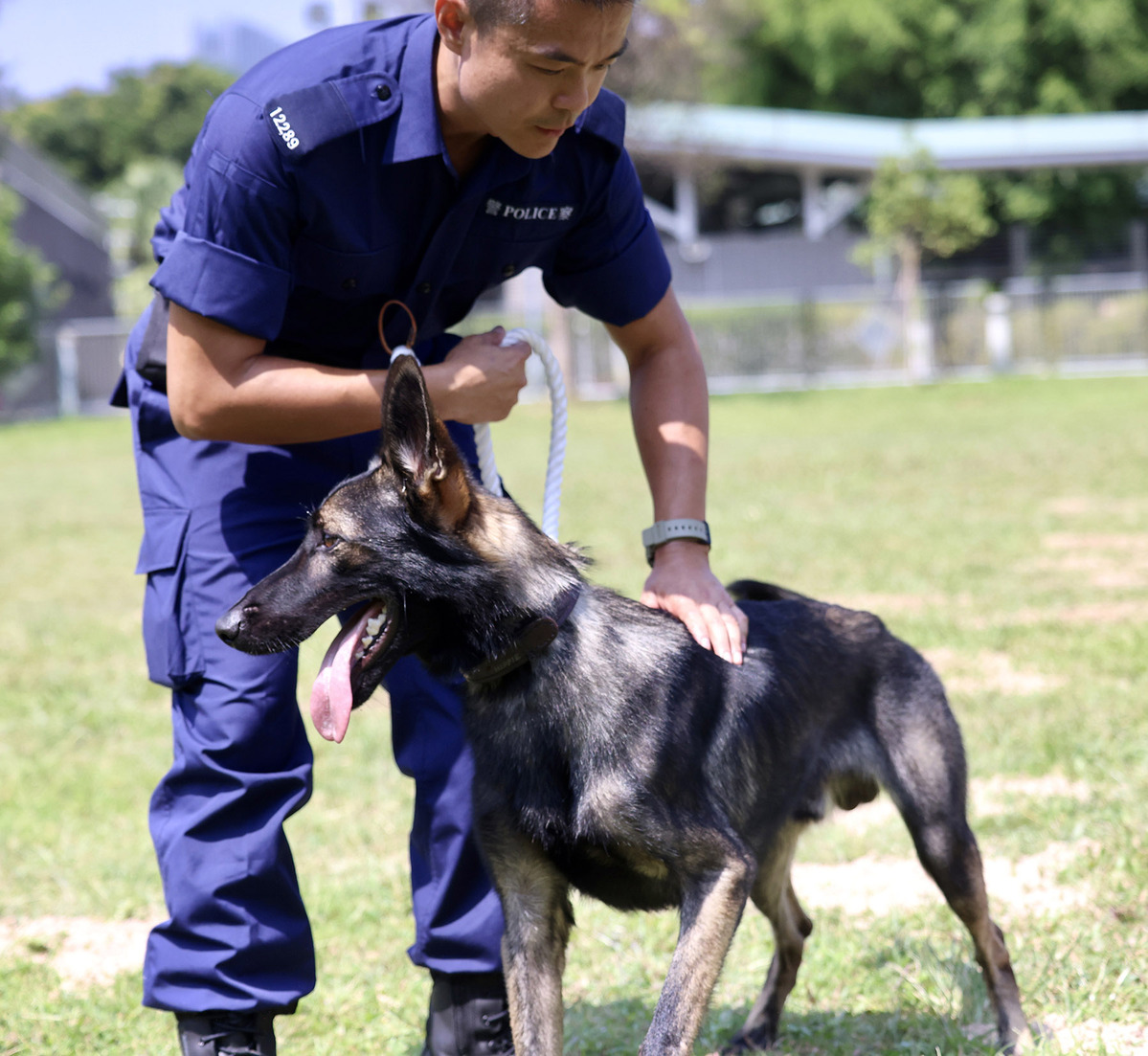Sentinels of the city
What makes a smart police dog? Faye Bradley visits the Hong Kong Police Dog Unit Headquarters in Sha Ling to bring our readers an exclusive behind-the-scenes story.


Finding a perfect match
Each trained dog is matched with a member of the Police Force. "We hold a selection process every year for new handlers, but before officers can apply, they need to complete around six to seven years of police work," Fan says. "It's crucial that they have experience of working in the patrol subunit, the emergency unit and even the tactical unit. This is essential because if an officer isn't confident handling situations on the streets, it's risky to add a dog into the mix."
Being a dog lover isn't necessarily an advantage. "Not everyone who claims to love dogs can handle them effectively," observes Fan. "Once selected, officers must first spend around a year performing kennel duties — handling the more demanding aspects of the job to demonstrate that they are prepared. Not everyone makes it past this phase."
Successful officers are faced with a fresh set of challenges.
"It takes about two to three weeks for the dog to recognize and bond with its handler," says Cheung Chung-yin, a sergeant posted at the PDU. Hence, handlers need to work out how to best establish a rapport with their charge.
"Occasionally, dogs may act a bit mischievous and ignore orders during training, so we have to correct their behavior and bring them back on track. That's where the real difficulty lies," says Hippie's handler, Police Constable Chong.
"Establishing a common language between handler and dog is essential, and the process relies heavily on trust," Fan says. "The handler and the dog need to develop their own unique way of communicating in order to understand one another."
"Trainers often remind us that handlers can hope to build strong connections with the dogs they are in charge of through playing, pet grooming and exploring new places together," she adds.
Chan Ping-fung, a station sergeant at the PDU, had a tough start. The Dutch shepherd assigned to him turned out to be strong-willed and noncooperative. He didn't trust Chan and refused to come out of his kennel when called. It was only after the dog was injured as a result of an attack on Chan's vehicle and received postsurgical care from his handler that they finally bonded.























